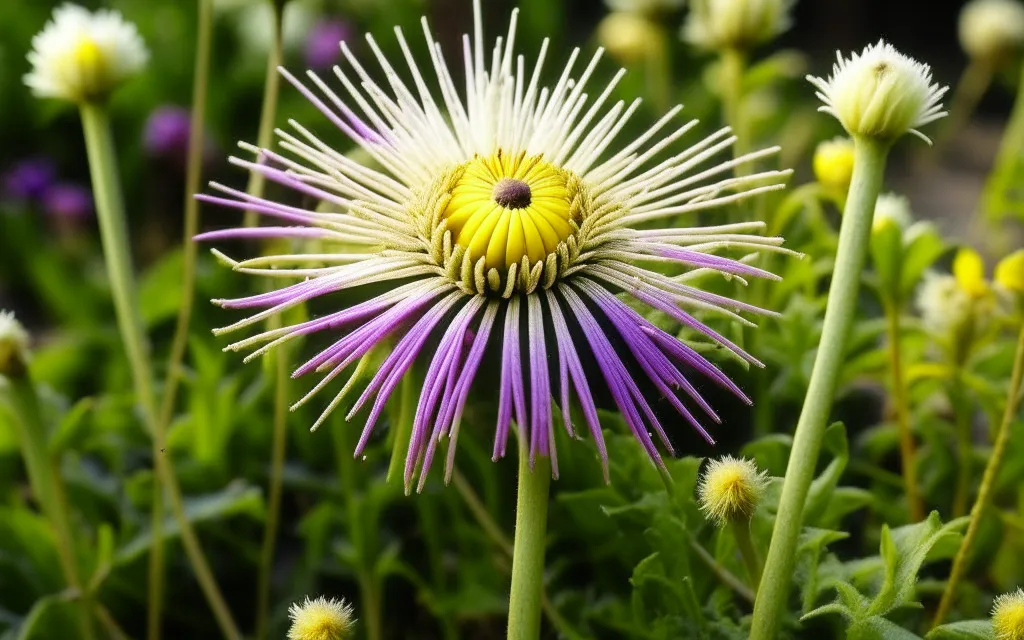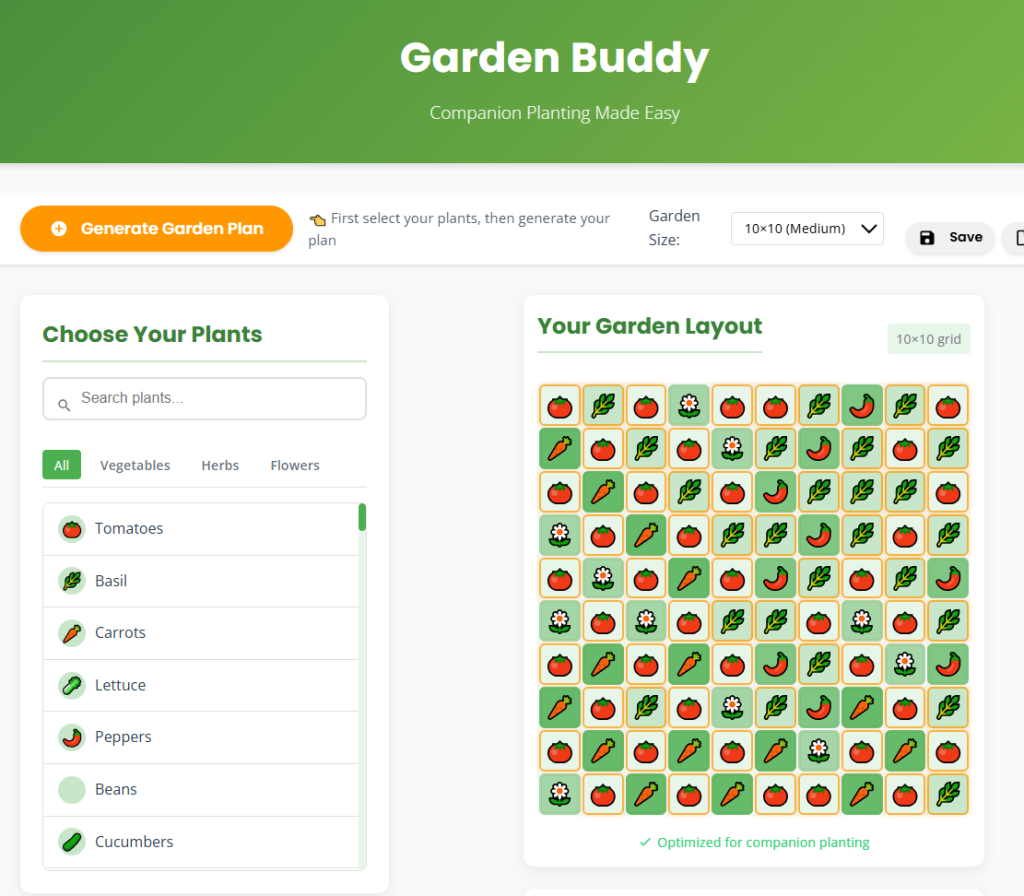
Growing Salsify: Your Guide to Success
Let’s dive into the wonderful world of Salsify, shall we? This delightful root vegetable, often referred to as the “oyster plant” due to its subtle, seafood-like flavor, is a must-try for any adventurous gardener. Salsify is a biennial that prefers well-drained, sandy soil and plenty of sunlight. It thrives in cooler weather, making it a splendid choice for spring and fall gardening. Remember to water it moderately and you’ll be on your way to a bountiful harvest!
Salsify has a rich history, dating back to the Mediterranean region of the 16th century. It was widely cultivated in Europe and eventually made its way to the Americas. Today, it’s enjoying a renaissance among chefs and home gardeners alike! It’s fun to think about how this humble veggie has traveled through time and culinary history. And if you’re feeling particularly adventurous, you might consider growing multiple variants of Salsify, like the common Salsify (Tragopogon porrifolius) and purple salsify (Tragopogon dubius). Each has its own unique flair and flavor profile!
Ways to Grow Salsify
Now, let’s talk about the different ways you can grow Salsify. One fantastic method is to grow them vertically. Using raised beds or planting them in containers allows for better air circulation and makes it easier to manage weeds. If you’ve got limited space, consider going vertical! Just imagine a garden with lush Salsify plants reaching for the sky—what a sight that would be!
Companion Planting Benefits for Salsify
Have you ever heard of companion planting? It’s a fantastic strategy that can help your Salsify thrive! So, what are the benefits of companion planting for Salsify? Well, planting certain crops together can lead to healthier plants and improved yields. For instance, companion plants can repel pests, attract beneficial insects, and even enhance each other’s growth. It’s all about creating that perfect garden ecosystem.
Good Companion Plants for Salsify
Let’s get into the specifics! Two excellent companion plants for Salsify are carrots and parsnips. Both of these root vegetables share similar growing conditions with Salsify, making them great neighbors in the garden.
Plants to Avoid
Interestingly, there aren’t known plants that you should avoid when growing Salsify. It seems like Salsify is quite the social butterfly in the garden! Just to play it safe, I’ll mention keeping your crops spaced out properly. Aim for about 12 inches between each Salsify plant, and the same goes for carrots and parsnips. This spacing helps to minimize competition for nutrients and allows each plant room to grow without overcrowding.
Wrapping Up
So, there you have it! By incorporating companion planting into your gardening practices, you’ll boost your chances of a successful and abundant Salsify harvest. Remember, the key is to maintain that balance between plants that support and enrich each other. I hope you’re as excited as I am to get your Salsify patch started. It’s time to dig in and get growing! Happy gardening!
Companion Planting with Salsify: Guidelines for Success
Hey there, fellow gardener! If you’re growing Salsify—a unique and delicious root vegetable—you might be wondering how to enhance its growth by planting companion plants. I’ve had my share of experimenting in the garden, and I’m excited to share some spacing recommendations that I’ve found to work well. Let’s dig in!
General Rule for Spacing with Carrots and Parsnips
When it comes to planting Salsify alongside carrots and parsnips, a good rule of thumb is to maintain about 4 to 6 inches between your plants. This spacing allows each vegetable to have enough room to grow without overcrowding. Since Salsify can grow fairly tall, providing space ensures they’ll all thrive without competing for nutrients.
Guidelines for Tall Companions
Tall plants can cast shade on shorter ones, so it’s important to select your heights wisely. For taller companions like tomatoes or corn, aim for a spacing of about 12 to 18 inches from Salsify. This distance not only prevents shade from hindering Salsify’s growth but also helps manage airflow.
Guidelines for Low-Growing Companions
Low-growing companions like lettuce and radishes can be fantastic partners. They don’t compete for vertical space and can even benefit from the shade Salsify provides. Keep them about 6 to 8 inches away to give them a good start and allow for adequate ground coverage.
Guidelines for Strongly Aromatic Companions
Plants with strong aromas, such as herbs, can deter pests and attract beneficial insects. When considering companions like basil and dill, try to space them about 8 to 10 inches from Salsify. This distance not only helps with pest control but also encourages healthy growth by minimizing competition for nutrients.
Guidelines for Nutrient-Heavy Feeders
Nutrient-heavy feeders, like squash and beans, should ideally be planted 12 to 18 inches away from Salsify to minimize competition for essential nutrients. These plants are known for their high nutrient demands, so give them elbow room!
Guidelines for Spreading or Vining Companions
Vining plants like cucumbers and melons can take up a lot of horizontal space, so be sure to plant them at least 18 to 24 inches from Salsify. This way, they won’t suffocate your Salsify plants as they spread and grow.
Adjusting Based on Garden Conditions
Always consider your specific garden conditions. If you’re in a particularly wet area or dealing with a lot of shade, you may want to adjust these distances slightly. Each plant has its own individual requirements, so keep an eye on their growth and be flexible with your spacing!
Summary for Carrots
Besides being great companions for Salsify, carrots thrive alongside onions and leeks, which can help deter pests. I find spacing them around 3 to 4 inches apart works well, allowing room for their roots to develop without crowding.
Summary for Parsnips
Parsnips also play well with other root vegetables, such as beets and turnips, which share similar growing needs. A spacing of 4 to 5 inches is ideal for these partners, maximizing your harvest without compromising quality.
Remember, gardening is all about experimenting and learning what works best in your unique environment. Happy gardening, and may your Salsify flourish alongside its companions!

Leave a Reply